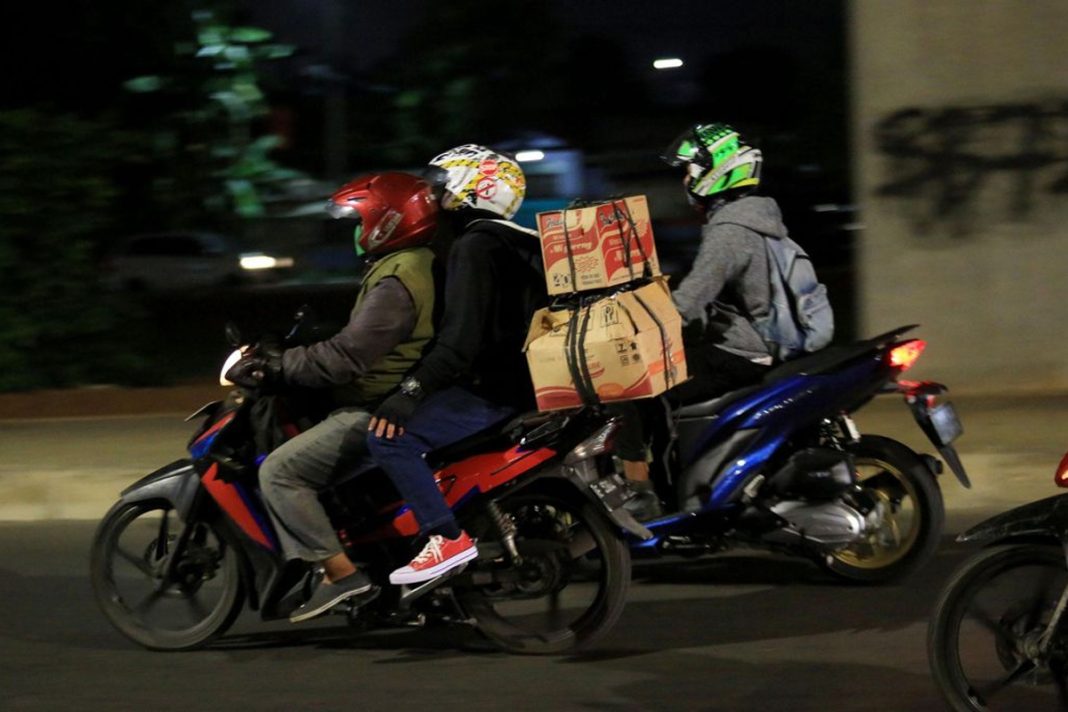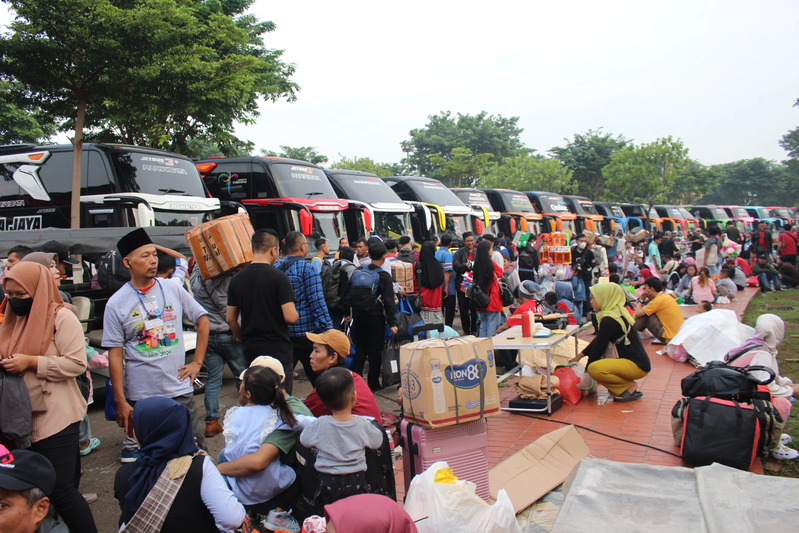Discover mudik, a deep-rooted homecoming tradition that makes Eid al-Fitr in Indonesia truly special.
For many Indonesians, mudik is a yearly tradition conducted as a preparation towards Eid al-Fitr. In Indonesia, Eid al-Fitr is a one-week holiday; therefore, people who are working away from home will likely return to their hometowns during these days. The moment of togetherness with families is something people can’t feel when they are living away from home. With all the hectic and ups-and-downs, returning home will always heal their fatigue.
How did mudik become a tradition in Indonesia? And why is it truly important for most Indonesian people?
The term mudik in Indonesia was originally found during the Dutch colonial era. This term comes from the Javanese language and stands for “mulih dhisik”, which literally means “returning to the village”. Initially, mudik was used to describe the movement of people who work in big cities back to their hometowns during the holidays, especially at certain times such as Eid al-Fitr.
Why did it happen? Well, people from villages used to attempt to look for better opportunities (jobs, income, healthcare access, etc.) in big cities in Indonesia, such as Jakarta, Surabaya, and Medan. In those places, people from various regions gather and work.
With all the bustle of work, it is normal for nomads to keep longing to go back to their hometowns; however, it is not that easy to just return home anytime they want. They have to find suitable dates for homecoming. As mentioned beforehand, Eid al-Fitr (popularly known as Lebaran in Indonesia) is a long holiday — it can last for at least seven days. That is why they will take this chance to return to their hometown. Otherwise, they need to wait until next year, or they have to take some days off during the New Year.
Why do people keep coming back to their hometowns?
Beyond just a homecoming trip, mudik holds deep cultural and emotional significance for Indonesians. It is not merely about returning home but about reconnecting with family, rekindling old memories, and strengthening ties with one’s roots. For many, mudik represents a spiritual journey, a moment of reflection, and an opportunity to seek forgiveness from family members before celebrating Eid al-Fitr together.
One of the core values of mudik is silaturahmi, or maintaining good relationships. The trip home is not just about meeting parents or siblings but also visiting extended family members, neighbours, and childhood friends. It is a time for rekindling bonds that may have weakened due to distance or busy work schedules. Many people also take this time to visit the graves of ancestors, offering prayers as a sign of respect and gratitude.
Apart from the social and cultural aspects, mudik is also a time for sharing blessings. Those returning from big cities often bring gifts or money, known as oleh-oleh or THR (Tunjangan Hari Raya or Religious Holiday Allowance), for their relatives. This gesture symbolises gratitude and a willingness to share one’s success with family members who may not have the same opportunities in urban areas.
In addition, here are some mudik traditions across Indonesia
Indonesia’s diverse cultures bring unique traditions to mudik, making the experience even more meaningful. While the core purpose remains the same, different regions celebrate mudik in their own distinctive ways.
Mudik by Motorbike – Java and Sumatra
One of the most common yet challenging mudik traditions is the long journey home on motorbikes. In Java and Sumatra, thousands of families, sometimes with young children, embark on long-distance rides on motorbikes, carrying bags strapped onto their vehicles. To support this, the government and local communities often provide rest areas with free food, medical assistance, and vehicle checks along the highways.
Nyorog – Betawi Tradition
In Jakarta and surrounding areas, the Betawi people practice nyorog before mudik. This involves delivering food or gifts to family members, especially the elderly, as a sign of respect. Even if they cannot go back home, Betawi people believe that sending nyorog is a way to honour their family ties.
Perahu Mudik – Kalimantan and Riau Islands
In regions with vast rivers, such as Kalimantan and the Riau Islands, many people travel home by boat instead of cars or motorbikes. The waterways become crowded with families returning home, and the atmosphere at the ports is just as bustling as airports or bus terminals during the mudik season.
Mudik Gratis – Government and Corporate Assistance
To ease congestion and support those with financial constraints, both the government and private companies organise mudik gratis (free mudik transport). This initiative offers free bus, train, or ferry rides to help people return home safely and comfortably. This practice has been growing in popularity over the years, significantly reducing the number of accidents on the roads during the mudik period.




